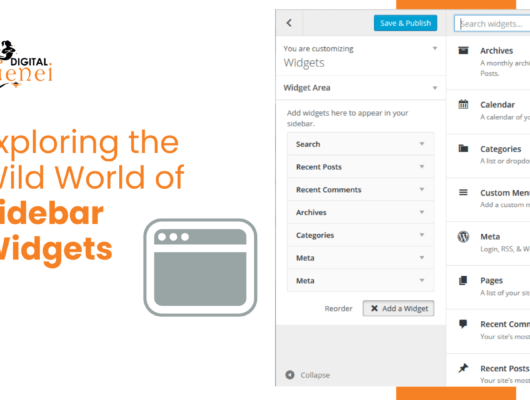As you set out to create your online presence, the choice of the content management system (CMS) you use is crucial. There are many options, but WordPress and other CMS platforms such as Drupal and Joomla stand out. Choosing the right CMS can be overwhelming, but the decision will ultimately depend on the project’s needs.
But how do you know which CMS is the right one for your project? Do you go with the most popular CMS, WordPress, or do you explore the other platforms available? This article will help you answer these questions by examining WordPress and other CMS platforms to determine which is right for your project.
Why is your choice of CMS important?
The CMS you choose is critical because it will affect your website’s performance, functionality, and scalability. It will also impact the ease of use, maintenance, and support. The wrong CMS can lead to a website that is slow, clunky, and hard to use, while the right CMS can help you create a website that is fast, responsive, and user-friendly.
With that in mind, let’s take a closer look at WordPress and other CMS platforms.
WordPress: The popular choice
WordPress is the most popular CMS platform, powering over 40% of all websites on the internet. It is free and open-source, which means anyone can download and use it. WordPress has an enormous community of developers and users who contribute to its development and provide support.
One of the biggest advantages of WordPress is its ease of use.
"WordPress is the most user-friendly CMS out there. It is easy to install, and there are plenty of resources online that can help you get started."
WordPress also has a vast library of plugins and themes, which can help you add features and customize your website’s design. However, the popularity of WordPress can also be a disadvantage. Hackers often target WordPress websites, so you need to ensure that you keep your website up-to-date and secure.
Other CMS platforms: Drupal and Joomla
Drupal and Joomla are two other popular CMS platforms. Drupal is known for its scalability and security, making it a popular choice for large and complex websites. Joomla, on the other hand, is known for its ease of use and flexibility.
"Drupal is a great CMS for websites that require more complex features and customizations. It's ideal for large websites that require multiple content types and user roles."
"Joomla is a great option for those who want a lot of flexibility in their website design without needing to hire a developer. Joomla has a great selection of templates that can be customized to fit any design."
However, both Drupal and Joomla can be more challenging to learn and use than WordPress. They also have smaller communities than WordPress, which means less support and fewer resources available.
How to choose the right CMS for your project
Choosing the right CMS for your project will depend on your project’s specific needs. Here are some factors to consider:
- Your website’s size and complexity
If you’re creating a small website, WordPress is an excellent choice. It’s easy to use, and there are plenty of resources available to help you get started. If you’re creating a large website with complex features, Drupal may be a better choice.
- Your website’s design and customization needs
If you want a lot of flexibility in your website’s design without needing to hire a developer, Joomla may be a better choice. If you don’t mind using pre-made templates and want access to a vast library of plugins and themes, WordPress is an excellent choice.
3. Your website’s security needs
If you’re concerned about website security, Drupal may be the best choice. Drupal is known for its security features and is often used for large, high-profile websites. However, WordPress also has a variety of security plugins available that can help you protect your website.
- Your website’s scalability needs
If you’re planning on expanding your website in the future, Drupal may be the best choice. Drupal is highly scalable and can handle large volumes of content and traffic. However, if you’re not planning on expanding your website significantly, WordPress or Joomla may be a better choice.
- Your budget
Budget is also a critical factor in choosing a CMS. WordPress is free, and there are many free plugins and themes available, making it an affordable option. Drupal and Joomla both have paid versions that offer additional features, but these can be more expensive.
Conclusion
In conclusion, choosing the right CMS for your project will depend on your specific needs. WordPress is the most popular CMS and an excellent choice for small to medium-sized websites. Drupal is ideal for large and complex websites that require high security and scalability, while Joomla is a great option for those who want flexibility in their website design without hiring a developer.
Regardless of which CMS you choose, it’s essential to keep your website up-to-date and secure. Regular updates and security measures will help protect your website from hackers and ensure that it runs smoothly.
Ultimately, the CMS you choose should be user-friendly, customizable, and scalable. With the right CMS and a solid website strategy, you can create a website that effectively communicates your brand’s message and attracts your target audience.





